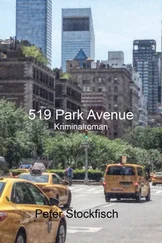“Yeah, sure,” I stammered. “Sorry … something just occurred to me.”
“What, hon?” She kissed my shoulder and felt for my hand.
“I think I’ve … uh, left my back door open.” Was Aaron in America? Was he on his way to Boudewijn and Mike?
“Prob’ly not,” Bobbi said. “And anyway, if they loot your place, you can always come stay with me.” She let her head sink back onto my shoulder. I looked out of the window: on the horizon you could see Watts Towers, two black pointy hats made of junk and old iron. I dialed my voice mail and pressed the phone as hard as possible against my far ear. Why on earth did I trade in my family for this bunch? You and your intuition, so much for all those McKinsey decision-making models.
Boudewijn spoke to me — in Dutch, the only person who still did — via my provider’s voice mail chip. I had to do my best to understand what he said, what with Vince in the background discussing his moving plans with Rusty and Kristin. “Joni,” Boudewijn’s voice said, “this is not good. Bever got Mike on the line.”
Bobbi was still holding my hand; as I squeezed it I felt her eyes bore into me. “Have they cleaned you out?” she asked.
“Do you know anything about this?” Boudewijn continued. “He managed to wangle your address in L.A. out of Mike. What’s Bever up to? Call me, damn it.”
Before he lies down in the extra-firm twin bed, Sigerius reaches into his laptop bag for the CD-ROM with the website photos. He finds the disc he managed to fool himself with last spring in Shanghai; fighting back melancholy and self-censorship, and with a sour taste in his mouth, he selects five images and e-mails them to Tineke, as per their agreement to the Hotmail address he once opened for them but which they never use.
The next morning there is consternation at his department about an editorial on last weekend’s political talk show. He had missed it; the columnist held forth on a controversial education plan for which he was called — they’ve wasted no time, have they — a turncoat : he is about to implement a policy which as rector he vigorously opposed. This is true. He and his spokesman formulate a strategy; afterward, alone in his office, he phones MeesPierson, his private bank, where his call is taken with the customary discretion. Saying the amount out loud (“Michael, listen, I need 100,000 tomorrow, cash”) sounds definitely shady, as though he’s ordered a shipment of explosives from Kandahar to blow up the Prime Minister’s residence. He chooses a branch in The Hague where he can pick up the bills early tomorrow morning. “I’m afraid I have to ask a few intrusive questions,” the fellow says.
“Because?”
“The law, Mr. Sigerius. I have to regard your withdrawal as an ‘exotic’ transaction.” Apparently there is a form that has to be sent to a national data bank. He asks if he can call back tomorrow, he has to go now.
After he returns from an obligatory dinner with the Culture Council, Sigerius gets a phone call from Janis. He’s uneasy: it’s not about those pictures, is it? First they discuss the TV editorial (a number of newspapers have followed up on it), and then she tells him that she and Tineke will be going to Val-d’Isère a week early; they are at the farmhouse and plan to leave first thing in the morning. Not with the Audi, but in her own car, the skis are already up on the roof rack, does he mind driving down alone? “I’ll have to grin and bear it,” he says.
After they’ve hung up he’s almost sorry it wasn’t about the pictures. He likes Janis’s straightforwardness. He’s curious what she would have to say about it, just as he wonders what she would think of the blackmail he’s about to succumb to. In bed he recalls the serious talks they’ve had: you could count them on the fingers of just one hand, but they were always, how would you put it, clarifying . Janis is a girl who can lie sprawled on the sofa watching the Tour de France for hours on end, and just before the finale switch off the TV and ask: “Hey Dad, why’d you marry that Margriet, anyway?” It was a rainy Sunday afternoon, they were home alone; she barraged him with questions, and by the time he was through with his reconstruction of that disastrous marriage it was too late to go to their favorite Chinese take-out.
With Janis’s voice still resonating in his head he tosses and turns for hours under a too-thin blanket, barraging himself with questions, her questions: but why have a child , Dad, why have a child with that woman? Sleep? Forget it, his restlessness disguises itself as a dream, and in his agitation the images are relentless; they are linked together like a chain that begins with 100 grand hush money and ends at that marriage he’d been conned into. How did he manage to get himself into such a mess? He tries to block out the memories, but there’s no holding them back: there she is, Margriet Wijn, her raven-black hair put up like one of The Supremes, her eyes always slightly hazy. What did you see in her, Dad? Of course he retaliates, don’t give me such a hard time, young lady, I was twenty-four, damn it, what the hell did I know. They’d married him off, that’s what it boiled down to, his sister-in-law married him off. Right, Dad, blame somebody else . She was right — why did she always have to be right? Your sister-in-law married you off? Go on, I’m listening . All he wants is to sleep, but his memory gives his younger daughter what she wants, no, it wakes the dead; instead of sinking into blackness himself, he dredges up old ghosts. He’d just left to spend six months in Japan when his father died suddenly — while hanging a lamp, Janis, your grandfather (well, my father) came crashing off an end table, heart attack, a bolt of amperes straight through his heart. Months later he arrived back in Delft (having missed the funeral, of course) to find that the Trompetsteeg 14 had been confiscated by his brother Fred and his wife, a pair of late-twenty-somethings who’d installed themselves in the barely cooled-off living room acting like they were his parents. He and that Mieke get under each other’s skin, she’d send him to the bathroom with a bucket and rag, “You shower too often and too long, Siem, once a week is plenty, and from now on take your judo suit to the Laundromat — right, Fred?”
On Saturday evenings she more or less shoves him out of the door—“go on, Delft is full of cafés, do you want a girlfriend or don’t you?” followed by that incessant “right, Fred?”—so to get them off his back he admits he knows a nice girl, Menno Wijn’s sister, from Utrecht, where he still goes for judo four times a week. One Friday afternoon he gets home from the athletic training school where he teaches and gets the shock of his life: there she is , Maggie Wijn, sitting straight up in his late father’s easy chair, shooting the breeze with Mieke like it’s the most natural thing in the world. She looks different, he explains to Janis, less blue-collar; she’s ladylike, she’s used hairspray, there’s eyeshadow on her limp lids, she’s holding a white leather purse on her lap. Mieke’s been meddling again, but for once he’s grateful; until now it’s never got any further than awkward stammering at the back door when he stopped by to fetch Menno. Now they sit here chatting for a couple of hours, it’s even fun, they talk about beat groups she likes, about the liquor store on the Oude Gracht where she works as a cashier; she has a low, melancholy voice, but when he cracks a joke she laughs out loud, more than at Fred’s sarcastic remarks. At nine-thirty Mieke gives a little clap. “Siem, walk Margriet to the station, won’t you?” She’d have preferred to have Fred hand over the wedding rings there and then.
Читать дальше












